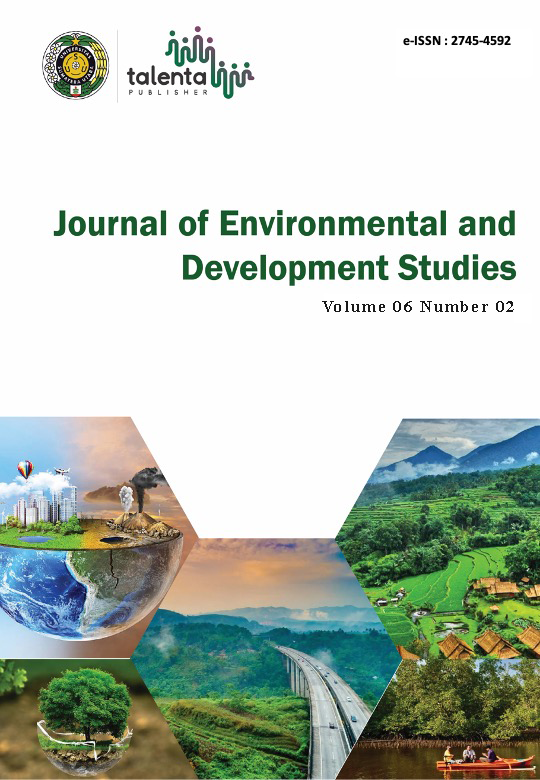Vegetation-Based Disaster Mitigation: A Case Study of Breadfruit Development in Maluku as a Means of Food Diversification
DOI:
https://doi.org/10.32734/jeds.v6i2.22593Keywords:
Breadfruit,, Food Supply Chain,, Emergency Food Products,, Natural Disasters,, Risk-Based,Abstract
This study examines the potential of local food crops in Maluku, namely breadfruit, within the Food Supply Chain (FSC) concept for disaster management as Emergency Food Products (EFP). In several disasters in Maluku, food supplies face significant challenges related to availability and sustainability. It is crucial to find strategies to maintain availability and sustainability while considering local potential. This study uses qualitative methods, including observation and focus group discussions (FGDs), to analyze vegetation-based disaster mitigation by assessing the potential of local food to ensure resilience in the face of risk-based disasters. The results of this study indicate that breadfruit cultivation in Maluku can be a disaster-responsive food source and fulfill the food supply chain concept for disaster management by increasing the distribution of breadfruit planting locations throughout Maluku Province. The findings of this study provide recommendations for incorporating breadfruit as a local food source into stakeholder policies, making vegetation-based mitigation a key strategy throughout the Maluku region.
Downloads

Downloads
Published
Issue
Section
License
Copyright (c) 2025 Journal of Environmental and Development Studies

This work is licensed under a Creative Commons Attribution-ShareAlike 4.0 International License.













